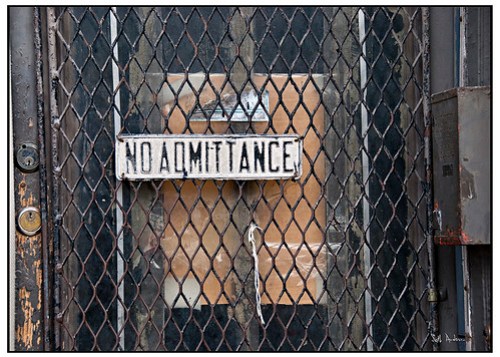Walk away from your negative equity house. Wow, that’s some harsh advice. Luckily I’m not in this situation, but I know some people who are. As Brett Arends writes, the economy is amoral, banks are not your friends, why should you be theirs?
Millions of Americans are now deeply underwater on their mortgage. If you’re among them, you need to stop living in a dream world and give serious thought to walking away from the debt.
No, you shouldn’t feel bad about it, and you shouldn’t feel guilty. The lenders would do the same to you—in a heartbeat. You need to put yourself and your family’s finances first.
How widespread is this? More than 11 million families are in “negative equity”—that is, they owe more on their home than it is worth—according to a report out this week by FirstAmerican Core Logic, a real-estate data firm. That’s a quarter of all families with mortgages. And for more than five million of those borrowers, the crisis is extreme: They are more than 25% underwater—the equivalent of having a $100,000 loan on a property now worth just $75,000 or less. That’s true for a fifth of mortgage holders in California, nearly a third in Florida and an incredible 50% in Nevada.
[Click to continue reading ROI: When It’s OK to Walk Away From Your Home – WSJ.com]
If you are 25% underwater, your home would have to raise 33% in value before you break even. What’s the time frame of that? Will your home value increase 3% a year, every year? So when do the math to see when your equity is no longer “negative”, it isn’t pretty.
As far as legal consequences, there might not be any…
Are you worried about the legal consequences of walking away? Certainly, you should check with a lawyer before doing anything, but the consequences will probably be more limited than you think.
In “non-recourse” states, the mortgage lender may have no right to come after you for any shortfall. They may have no option but to take the home, sell it and eat the loss. According to a survey last year by the Federal Reserve Bank of Richmond, such states include negative-equity hot spots California and Arizona. Even in “recourse” states, lenders may have limited ability to come after you. Often they’d have to jump a lot of legal hurdles, and it’s just not worth it for them. They’re swamped with cases anyway.
“In my experience, right now they’re not really going after anyone,” says Richard Nemeth, a bankruptcy attorney in Cleveland. “They just don’t have the resources.”
So what are the non-recourse states, anyway?
Here’s one list, but I’d make sure to discuss options with a lawyer or two before doing any drastic deeds.
Alaska
Arizona
Arkansas
California
Colorado
District of Columbia (Washington DC)
Georgia
Hawaii
Idaho
Mississippi
Missouri
Montana (if non-judicial foreclosure is used)
Nevada – (lender can get a deficiency judgment)
New Hampshire
Oregon
Tennessee
Texas (lender can get a deficiency judgment)
Virginia
Washington
West VirginiaThe following states allow non-judicial foreclosure:
Michigan
Minnesota
North Carolina
Rhode Island
South Dakota
Utah
Wyoming[Click to continue reading WikiAnswers – Which states are non-recourse states for mortgage debt]




















